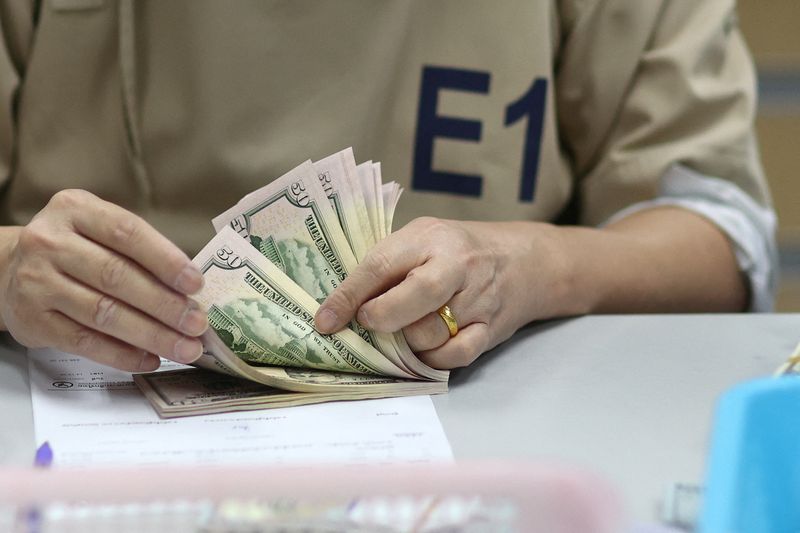By Harry Robertson
LONDON (Reuters) -The dollar slumped 1% on Monday after a report said President-elect Donald Trump was mulling tariffs that would only be applied to critical imports, potentially a relief for countries that were expecting broader levies.
The Washington Post (NYSE:POST) reported that Trump's aides were exploring plans that would apply tariffs to every country - but only on sectors seen as critical to national or economic security.
The U.S. dollar index was already trading lower but fell more than 1% to as low as 107.86 in the wake of the report, down from a more-than-two-year high of 109.54 on Thursday.
Expectations that Trump would apply sweeping tariffs that would hurt countries around the world have weighed on foreign currencies such as the euro and China's yuan in recent months and helped send the dollar soaring.
The euro rallied 1.13% on Monday to $1.0433, its highest in a week. It slumped to a 25-month low of $1.0225 on Thursday.
"The initial market reaction highlights that investors are reviewing this with some relief," said Lee Hardman, senior currency strategist at Japanese bank MUFG.
"Perhaps the initial phase of tariff hikes in Trump's second term may prove to be less than the market had been fearing," he said. "That has triggered a reversal in some of the dollar strength we have seen in recent weeks and months."
China's yuan also rallied, with the offshore currency up 0.5% at 7.325 per dollar.
The onshore currency closed at its lowest in 16 months at 7.315 in part because of concerns about how Trump's policies might hurt the economy.
Sterling was up 0.95% at $1.2542, the Australian dollar climbed 1.13% to $0.6284 and the U.S. dollar fell 0.96% against its Canadian counterpart.
Many economists believe broad-based tariffs would stoke U.S. inflation, potentially limiting the amount the Federal Reserve can cut rates, keeping bond yields higher and supporting the dollar.

Investors also had their eye on Friday's closely watched U.S. non-farm payrolls jobs report for December for further clarity on the health of the world's largest economy.
A slew of Fed policymakers are due to speak this week and are likely to reiterate recent comments from their colleagues that the battle to tame inflation is not yet over.
(Reporting Harry Robertson in London; additional reporting by Rae Wee in Singapore; Editing by Ed Osmond and Bernadette Baum)